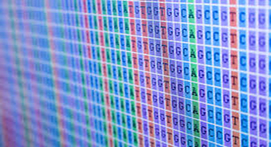Evidence continues to mount that certain types of sleep behaviors are governed by our genes. Some of the genes implicated in circadian rhythm sleep disorders are Period (PER1, PER2 and PER3) genes.
For those who suffer from Delayed Sleep Phase Syndrome, one of the culprits is a mutation (or 'variation') of the PER3 gene. This research is not new - here's an excerpt from a study in a 2003 issue of Sleep magazine:
"The Per3 polymorphism correlated significantly with extreme diurnal preference, the longer allele associating with morningness and the shorter allele with eveningness. The shorter allele was strongly associated with the delayed sleep phase syndrome patients, 75% of whom were homozygous."
I have done and will continue to do genetic testing for Delayed Sleep Phase Syndrome, and I'll be sharing what I learn. A lab test that would prove a sleep disorder is heritable and physiological (as opposed to psychological) thrills me for several reasons:
First, it gives me hope that more targeted therapies will be developed in the future.
Second, it would dismiss accusations that the afflicted lacks discipline, is lazy, etc. In addition to a test for a genetic mutation, biological markers such as cortisol and melatonin that cycle with circadian rhythms could be measured.
A diagnosis (based not just on clinical history but on definitive lab results) would force reasonable accommodations be made at school and workplaces just as they are for a person who has another type of disability (for example, extended time to take tests for students with ADHD, a headset for a receptionist with Multiple Sclerosis).


